Art for Justice featuring Agnes Gund and Catherine Gund with Maria Hinojosa
Transcript
[Art for justice. Agnes Gund, philanthropist. President Emerita, Museum of Modern Art. A white woman with a blond bob haircut, wearing a black patterned buttoned-up shirt with black pants. Catherine Gund, founder and director, Aubin Pictures. A middle-aged queer white woman with long brown hair, wearing a black suit with a black button down open-necked shirt. Maria Hinojosa, founder, Futuro Media Group. Anchor and executive producer, “Latino USA”. A Mexican American woman with shoulder length dark brown hair and bangs, wearing a dark blue sleeveless dress, and large silver heart earrings.]
ANNOUNCER: Please welcome Agnes Gund, Catherine Gund, and Maria Hinojosa.
applause]
MARIA HINOJOSA: It’s great to be here today in New York City, to be on stage with Agnes Gund and Cat Gund. When you looked at that beautiful Lichtenstein in your dining room and said, “I love this painting, but I’m going to, I’m going to—” and you’ve given many away. But this one there was a particular reason, and it was to create the Art for Justice Fund. Just tell us what that was like, that process of understanding that you were going to let go of this piece of art that you loved and adored. But you were doing it for a very concrete reason.
AGNES GUND: Well, I had seen Ava DuVernay, um, “13th” the night before or a couple nights before that. And, I thought it was so pivotal to me. I hadn’t seen anything like that before. I had thought about giving it away somewhat before that, and then I thought this would be the way to do it.
MARIA HINOJOSA: So, Cat, you are Aggie’s daughter, and so can you make the through line. Because one of the things you said about your mom, which I love, is that you said, “The thing about Aggie is that she’s free of conventions. And that’s why she ends up doing something so unconventional.”
CATHERINE GUND: I should just start by saying that, you know, in our house, like, art is the first and last thing. But, for us, it’s like the beginning and the end—art was here before and it will be here when mass incarceration is over. And it will be here when philanthropy has put itself out of a job. Because philanthropy is reliant on inequality, then when we eradicate inequality we will not have to have the philanthropy that we see and understand now. And that’s part of what I appreciate so much about what Aggie did with Art for Justice. As she said, she’s been giving money away forever. She’s also been giving art away to museums and friends and universities. And she’s been incredibly generous, but what was really different this time, I think, was her recognition of the urgency in the moment—that this was a time when the right and the left were coming together in a really unusual, unique space. At this time, as we know, it’s the only bipartisan issue right now perhaps—maybe, decarceration. That it’s a time when formerly incarcerated people are in leadership, are getting the attention and the spotlight and the time and the money to do what they need to do to lead us out of this crisis. And it also was something that she didn’t want to see last. If the idea is to get rid of mass incarceration, why would you endow a fund that lasts and goes on forever and ever? So, I think, for her this sense of a five-year spend-down was really instantaneous. I mean, it just, it didn’t occur to her to do it otherwise. Because she wanted to get the money out. So it’s not about, sort of, how do we figure out power sharing in an endowed fund for years and years.
MARIA HINOJOSA: I just want to ask you about—leave us with some thoughts about what it is to be somebody who is prepared to be filled with risk, to be motivated by dreams and possibility and justice. That’s a space—you embody that for so many of us, Aggie. You don’t have to be here doing this and giving away, you know, selling your most prized artistic possession. And yet you do.
AGNES GUND: Well, I don’t think—I shouldn’t get the credit for it. It’s not … There are so many things that must be done in this world. And there are—so many of the people today have been saying that this is what counts. That people do this and that they give to these places where they can or they try to start things that have some resonance and are important for things. I think this is what philanthropy is about. You say something.
[applause]
CATHERINE GUND: This, to me, is what philanthropy is about, but it’s also what art is about. Art is about imagination, and justice is as well. It’s about being able to see that there could be something that’s not there right now and working towards making it happen. I appreciate when people talk about statistics and data, but that’s not when I cry. And, you know, we can change policies, but until we change peoples’ hearts and we change the narrative and we create a community people want to be a part of, none of the policy in the world is going to make any difference. And I think that what we’re seeing now in this national crisis is a real deliberate and shameful policy failure that led to mass incarceration. And I believe that art is what is going to get us out of it. Because it’s going to make people care and make people believe that there is no one that they would allow to be treated the way that we allow people to be treated in this country. And until we acknowledge that it did come from slavery, that we were trained in anti-Black racism, we were trained in violence. And that’s how we approach everything we do in
this country. Until that narrative changes, we’re not going to end mass incarceration, because it’s the same thing.
[applause]
AGNES GUND: Good.
[applause]
MARIA HINOJOSA: I think it’s quite beautiful, Aggie, and I just want to say thank you for showing us your heart. And I think that ultimately that’s what we’re talking about. It’s about justice, but in order to get to the justice part, you gotta feel. Aggie and Catherine Gund are examples of both, incredible art and capacity to feel.
[applause]
[New gospel of wealth. What does #GenerosityToJustice look like to you? Ford Foundation dot org forward slash new gospel.]
Accessibility Statement
- All videos produced by the Ford Foundation since 2020 include captions and downloadable transcripts. For videos where visuals require additional understanding, we offer audio-described versions.
- We are continuing to make videos produced prior to 2020 accessible.
- Videos from third-party sources (those not produced by the Ford Foundation) may not have captions, accessible transcripts, or audio descriptions.
- To improve accessibility beyond our site, we’ve created a free video accessibility WordPress plug-in.
Philanthropist Agnes Gund and daughter Catherine Gund, founder and director of Aubin Pictures, discuss the inspiration and impact of the Art for Justice Fund with Maria Hinojosa, founder of Futuro Media Group.
“This is what philanthropy is about.” – Agnes Gund
“Art is about imagination, and justice is as well. It’s about being able to see that there could be something that’s not there right now and working towards making it happen.”
– Catherine Gund
Learn more about New Gospel of Wealth
Other videos in this series
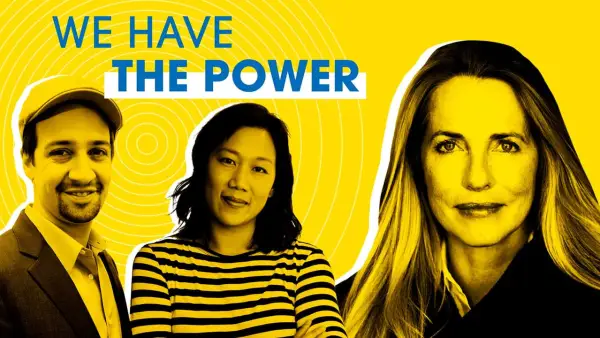
Let’s rethink giving
How can we reimagine philanthropy so that we create a future where there is justice and dignity for all? What are the root causes of the issues and how do we encourage the participation of many and not just a few?
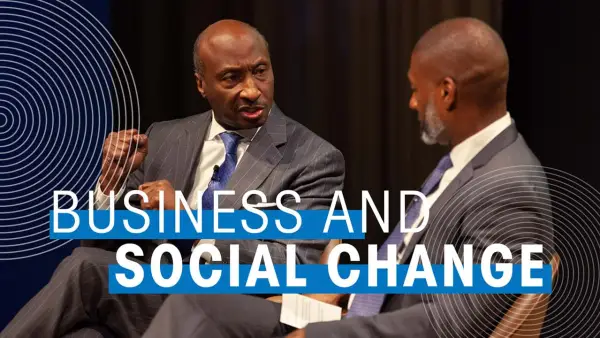
The business of justice featuring Kenneth Frazier and Charles Blow
Kenneth Frazier, CEO of Merck and Co, believes one of the greatest injustices in our society is the health disparities experienced by women of color. A zip code is more likely to determine health outcomes than genetic code. Frazier uses philanthropy to address mortality rate and wants to see more medical personnel listen to their women patients and patients of color.
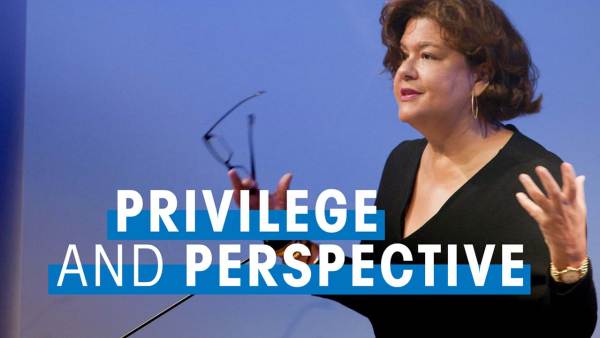
The privilege of perspective featuring Elizabeth Alexander
Elizabeth Alexander, president of the Andrew W. Mellon Foundation, on art, activism, and acknowledging adversity.
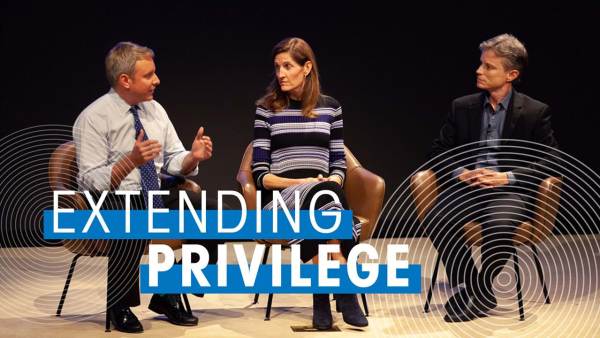
Extending privilege featuring Valerie Rockefeller and Henry Ford III
Henry Ford III, trustee of the Ford Foundation, and Valerie Rockefeller, chair of the Rockefeller Brothers Fund, discuss transforming philanthropy for the 21st century. The families have seen the value of impact investing and believe in partnerships to increase the difference that can be made.
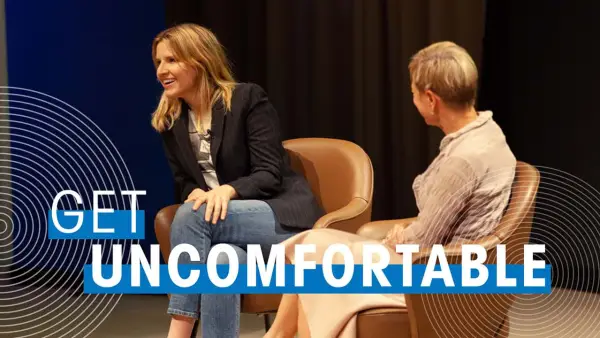
Getting proximate featuring Tara Westover and Hilary Pennington
Tara Westover, author of “Educated,” sees a disconnect between the rural and urban parts of the United States. She believes philanthropists need to be more proximate to the issues they care about, and that spending time with people who aren’t like you is key to disrupting inequality.
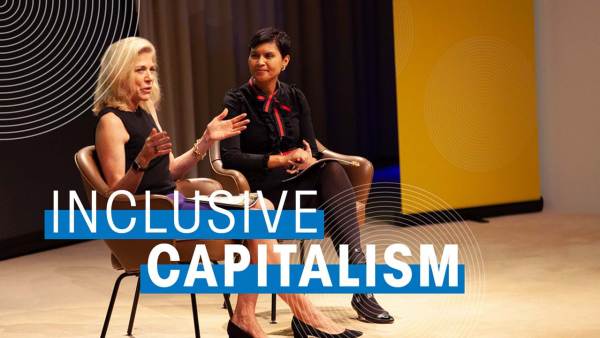
Can capitalism ever really be inclusive? featuring Lynn Forester de Rothschild and Stephanie Mehta
The top 1 percent of the United States controls 42 percent of the national wealth. Lynn Forester de Rothschild, founder of the Center for Inclusive Capitalism, explains that reimagining the economy and making it a sustainable, inclusive system that leads to strong economic growth requires reform.
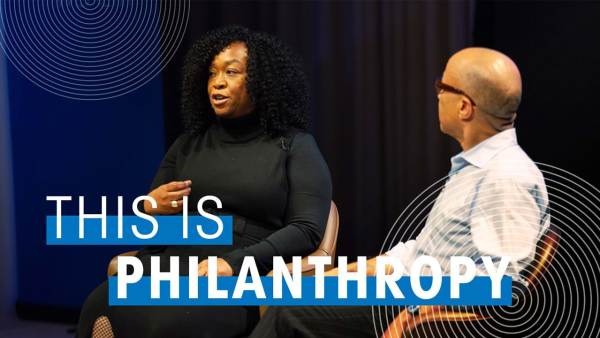
This is what a philanthropist looks like featuring Shonda Rhimes and Darren Walker
Writer and producer Shonda Rhimes has seen the power storytelling has to make change through her work, which centers marginalized people and issues. Rhimes believes philanthropy sets an example others can follow, and says supporting organizations that are already on the ground doing the work is key.
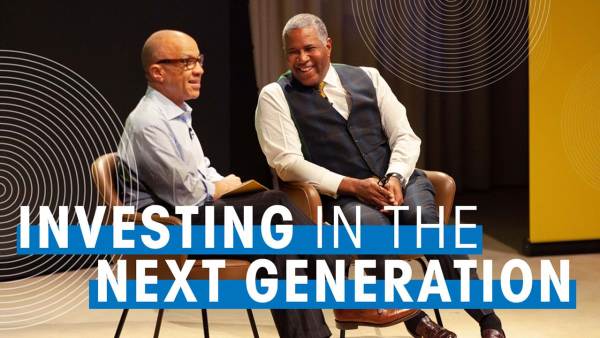
Catalyzing the potential of our time featuring Robert Smith and Darren Walker
Through philanthropy, Robert Smith, CEO of Vista Equity Partners, has alleviated the burden of student debt for a graduating class. He says private philanthropy can help address public policy challenges, such as student loan debt, and is a disruptive opportunity that liberates people to contribute to society in positive ways.
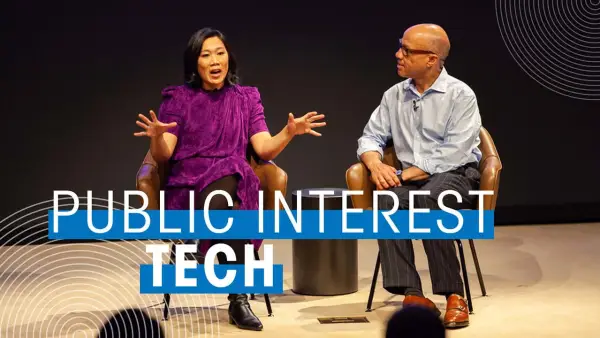
Tech funders changing philanthropy featuring Priscilla Chan & Darren Walker
The top 1 percent of the United States controls 42 percent of the national wealth. Lynn Forester de Rothschild, founder of the Center for Inclusive Capitalism, explains that reimagining the economy and making it a sustainable, inclusive system that leads to strong economic growth requires reform.
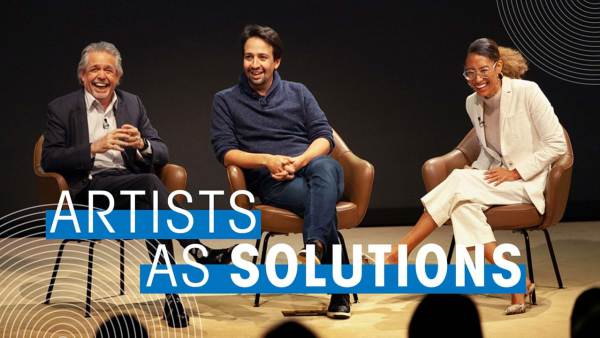
Why artists shouldn’t stay in their lane featuring Lin-Manuel Miranda, Luis Miranda Jr. and Elaine Welteroth
Composer and actor Lin-Manuel Miranda believes all art is political. He and his father, Luis A. Miranda Jr. of the MirRam Group, see the value philanthropy has to empower communities that may have been neglected, and allow them to share their stories through the arts, like Puerto Rico did after Hurricane Maria.
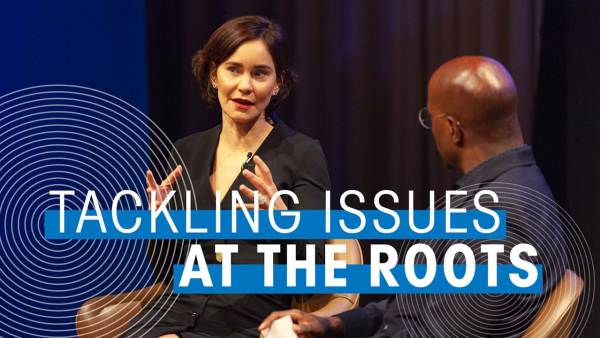
Good philanthropy needs government featuring Laura Arnold and Van Jones
Laura Arnold, co-chair of Arnold Ventures, believes policy change is the lever that will lead to sustainable change. She says we need to attack the systems that are creating the injustices we see, like criminal justice. Philanthropy can create better alternatives that governments can adopt.
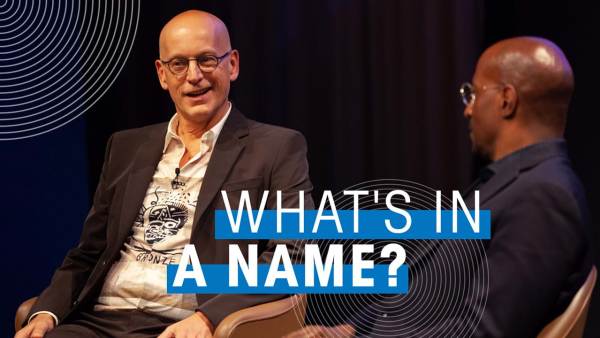
The power of a name featuring Jon Stryker and Van Jones
As a philanthropist, Jon Stryker, president of the Arcus Foundation, believes the act of naming gives power and influence to the work that is supported through his gifts. His philanthropy supports those on the frontlines of justice, providing resources and power to those who need it most.
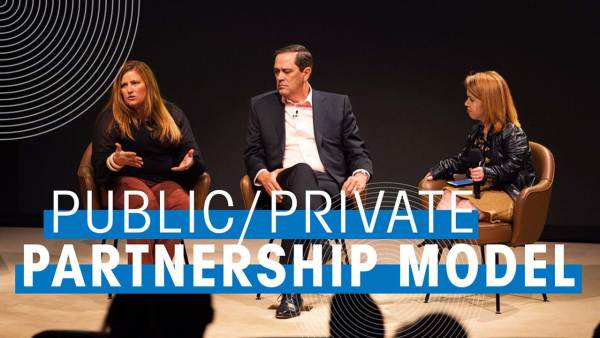
Public-private partnership: A new model for lasting impact featuring Jennifer Loving and Chuck Robbins
Jennifer Loving, CEO of Destination: Home, says a public-private partnership, like the one between her nonprofit and Cisco, headed by Chuck Robbins, can help create a model for the future of philanthropy, and tools like social bonds can help address some of the biggest crises of our time.
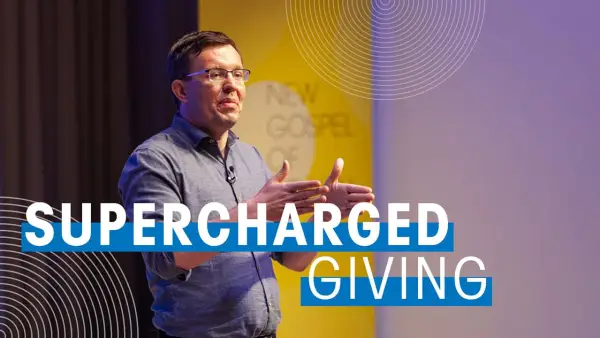
The new power of philanthropy featuring Henry Timms
CEO of Lincoln Center Henry Timms asks how philanthropy can supercharge civic engagement. Timms, who started Giving Tuesday, says trust-based philanthropy needs to shift from generosity to justice, driving more participation from more people, and encouraging meaningful ways to participate and collaborate.
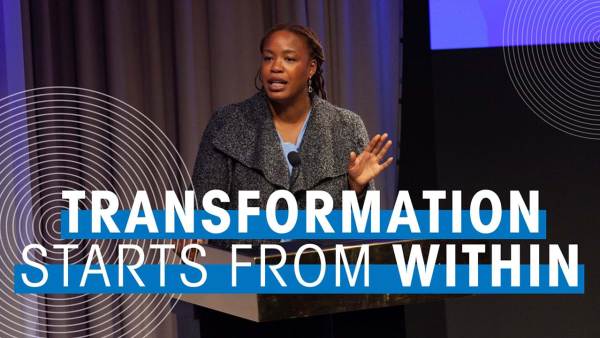
Transforming organizations from the inside featuring Heather McGhee
Heather McGhee, distinguished senior fellow at Demos, shares her experience of working to make the Demos think tank more diverse and led by people of color. Institutional racism, however slight, drives inequality, she says, so transformation needs to be a must-have and not a nice-to-have.
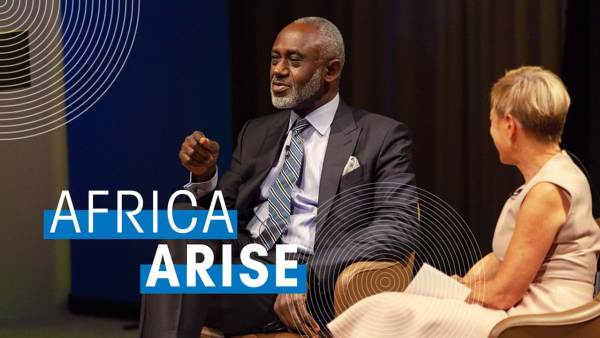
Africa, your time is now featuring Gbenga Oyebode and Hilary Pennington
Ford Foundation trustee Gbenga Oyebode has seen the value of impact investing on the African continent. He believes philanthropy should not just be giving, but investing with a social impact and an economic return. Giving is inherently part of African culture, but needs to be more strategic and collaborative.
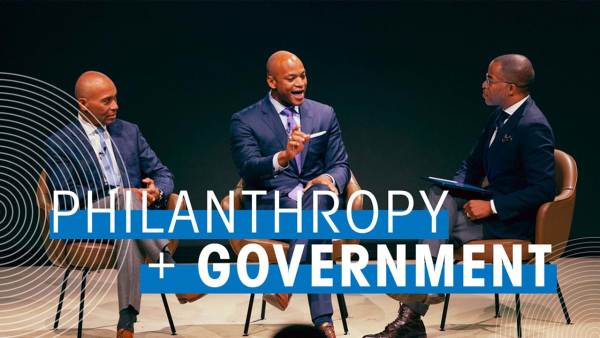
Why good government needs philanthropy featuring Deval Patrick and Wes Moore with Jonathan Capehart
Wes Moore, CEO of Robin Hood, and Deval Patrick, managing director of Bain Capital, see philanthropy working hand-in-hand with government in the fight for equality. Philanthropy can often provide the initial capital needed while government can take over and scale the solution.
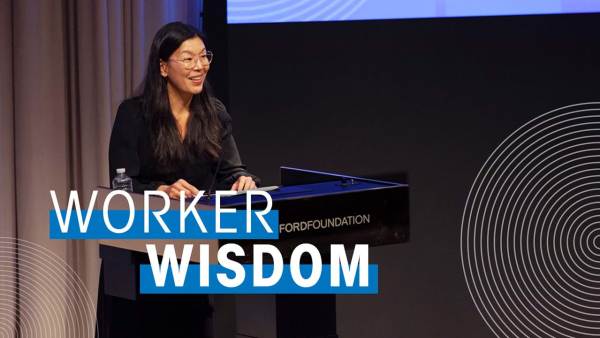
Bringing hidden labor to light featuring Ai-Jen Poo
Ai-jen Poo, executive director of the National Domestic Workers Alliance, says the sector of caregivers and domestic workers continues to grow. Building a future of work that works for all is centered on justice-based philanthropy and not a generosity model.
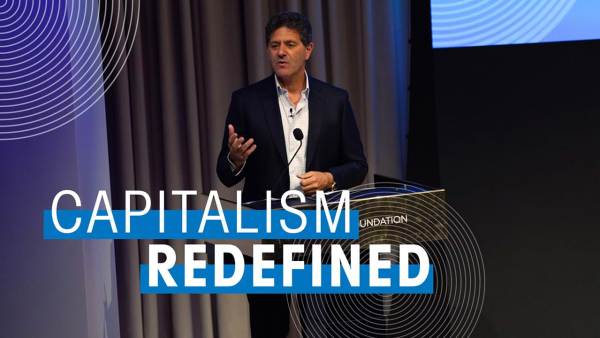
Capitalism redefined featuring Nick Hanauer
Entrepreneur Nick Hanauer asks us to reimagine the economy. He believes we need to change our beliefs about the economy to create a more just, more equitable society for all. By choosing better economic beliefs, we can change society for good.
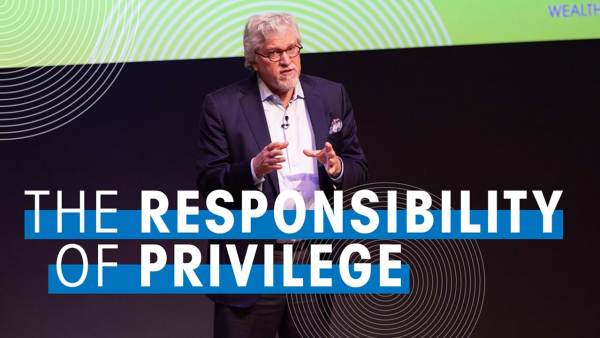
On using power and privilege for change featuring Jeff Raikes
Jeff Raikes, co-founder of the Raikes Foundation, says dismantling racism requires philanthropy to ditch its colorblind approach. People in power need to acknowledge that privilege is invisible to those who possess it. Privilege and power need to be transformed into a force for changing our society for the better.